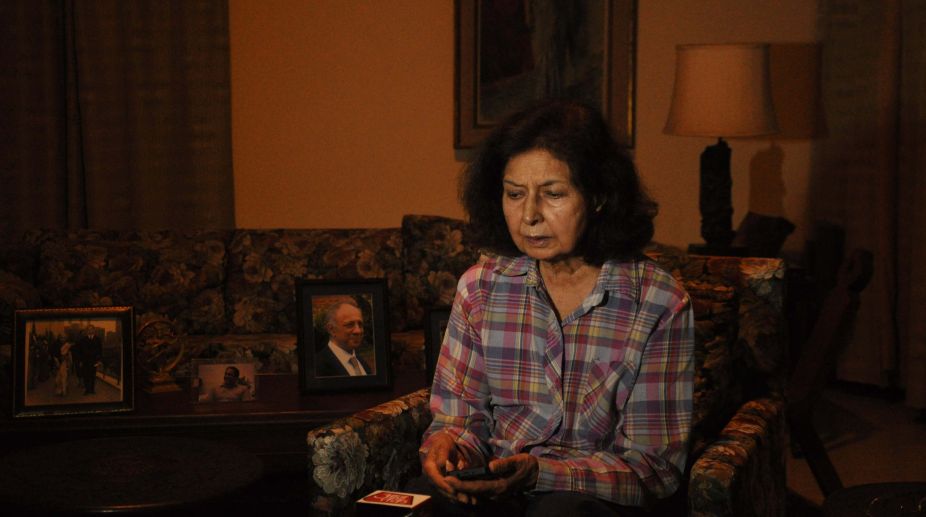Describing the current political situation as “not conducive for anybody”, veteran writer Nayantara Sahgal has called for rejecting the idea of “Hindutva” which is “creating violence” and has “nothing to do with Hinduism”.
“Right now, it is a very different situation. In the present political situation, the forces are trying to stamp out all dissent and disagreement. People who disagree with them are being killed. The last person was Gauri Lankesh.
Advertisement
“Not only writers, people who are transporting cattle have been killed. On suspicion of storing beef, people are being killed,” the writer told IANS.
“Remedy is to throw out Hindutva and reject it. This is creating violence. It is a very dangerous ideology and has nothing to do with Hinduism. Many writers have been speaking and writing against this ideology,” Sahgal said on the sidelines of the Apeejay Kolkata Literary Festival 2018 here on Saturday evening.
She said Hinduism was “not a terrorist creed” and did not advocate violence.
“The current (political) situation is not conducive not for just writers but for anybody. Anybody, they don’t like, they file cases against them. There is persecution and murder and (there is) a very evil political climate,” Sahgal said.
The much feted writer said India at the time of independence decided to put democracy before development and it also decided to be secular. “This is something to be proud of.”
During the session of ‘Women Writers: Shaping a New India’ at the Festival, an award – the Prabha Khaitan Woman’s Voice Award – in Association with Oxford Bookstore, was announced.
Applauding the initiative, she said: “I always hate to put a dividing line between men and women. Maybe, it is because that in my family men strongly believe about woman’s rights. I always firmly believe in a partnership between men and women.”
She also said that gender and class were not at all limiting factors while a particular writer writes about specific gender or class.
During the interaction, she said: “I have found from what I read that writers from Pakistan, Afghanistan and Nigeria are much more politically engaged with their political situations than Indian writers are with Indian situations.
“I don’t know whether it is a correct assessment. But what I have read that seems to me… They have written very powerfully about various political situations in their countries.”











